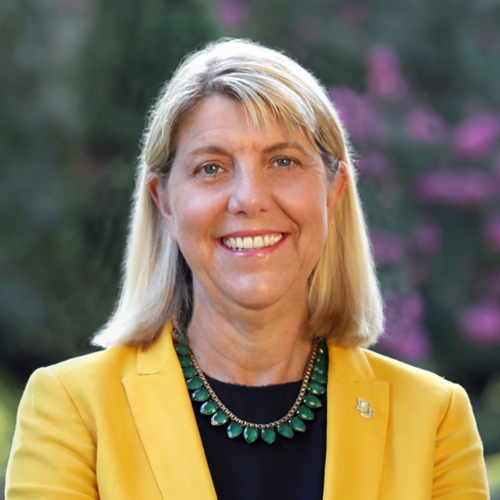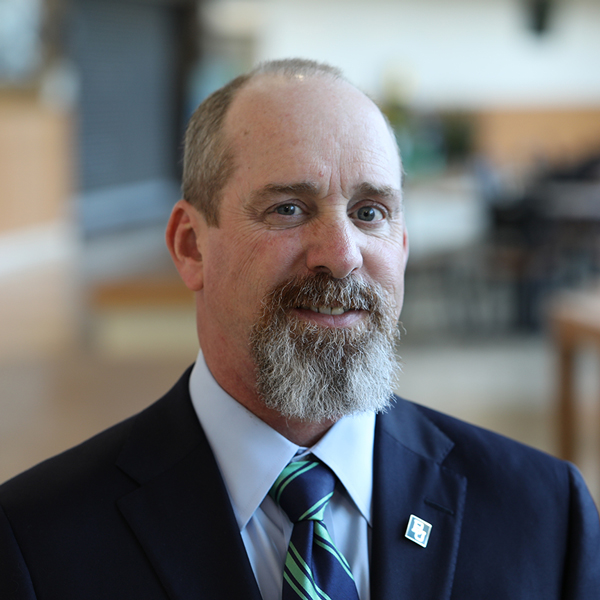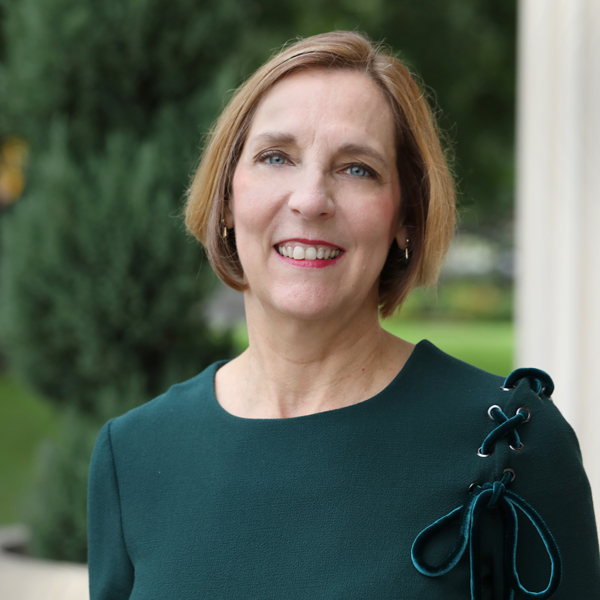From Vision to Reality: Baylor Achieves R1 Recognition
From the moment Baylor officially announced its pursuit of R1 recognition in 2019, the University has been on a purposeful path that reached an elite benchmark faster than anyone anticipated
In December, the Carnegie Classification of Institutions of Higher Education announced that Baylor University is now recognized as an R1 research institution, placing Baylor among the highest tier of research universities nationwide. Just 137 universities nationally have attained R1 status as a doctoral university recognized for “very high research activity.” That significant achievement is a major milestone in Baylor’s pursuit of preeminence as a Christian research university and a meaningful endorsement of the purposeful steps undertaken by the University to get here.
“This is a tremendous accomplishment for Baylor for so many reasons,” Baylor University President Linda A. Livingstone, Ph.D., said. “Through top-tier research, scholarship and external funding support, R1 universities — that now include Baylor University — bring their voice to bear in addressing our world’s most significant challenges. This has been a campus-wide effort from the Board of Regents all the way through our faculty and staff and students, and is a recognition of the great work they are doing.”
A Seat at the Table
To become an R1 institution, universities must meet a variety of Carnegie metrics related to research expenditures and funding, doctorates awarded and more. The impact of being an R1 institution, however, extends far beyond superlatives in meeting those benchmarks, important as they are.
From the earliest days of Baylor’s R1 pursuits, administrators have talked about the “seat at the table” afforded to the nation’s top research institutions. As researchers address the world’s greatest challenges, R1 institutions naturally lead in these efforts through ground-breaking research and scholarship. As an R1 university, Baylor brings more than just another voice to this quest for solutions: it brings a mission as a Christian research university that is distinct in higher education.
“This says a lot about the quality of the institution that you are. When you think about the best institutions of higher education in the country, one of the first markers that you look at is, ‘Who are the Research One universities?,’” Livingstone said.
“So, this really puts us in the same category with the other top universities in the country. And that gives us a lot of credibility. It gives our faculty credibility from an academic perspective. It attracts students and benefits them when they’re going out and looking for jobs. A Baylor degree is more valuable. It’s also incredibly valuable as we hire top faculty, who want to be at an R1 institution.”
Guided by Illuminate, Baylor’s strategic plan, and accelerated through funding from the philanthropic campaign Give Light, Baylor has strategically invested in faculty, students and research infrastructure to advance to R1 recognition. Initiatives like the Foster Academic Challenge provided funding for 14 endowed faculty positions among more than 50 funded faculty positions through Give Light, enabling Baylor to attract and retain top-tier Christian researchers. Baylor has further enhanced infrastructure through resources that support faculty grant application and fulfillment in the Office of the Vice Provost for Research, a Postdoctoral Hiring Program and focused opportunities for undergraduate and graduate students to engage in scientific research.
“This has truly been a collective effort to achieve R1 designation — many people over many years have played a role in seeing this through,” said Baylor Vice Provost for Research Kevin Chambliss, Ph.D. “Our administration, faculty, staff, deans and more have rallied around this vision and done the work to make it happen. It’s an incredible time to be here at Baylor University, and we’re poised even more definitively for growth in the years ahead because of all that has been implemented to make R1 recognition a reality.”
The combined results of those efforts propelled Baylor to R1 status far more quickly than anticipated. Carnegie rankings come out every three years, and the University had expected to reach R1 recognition by 2024. But the 2021 rankings demonstrated the success of Baylor’s efforts and poise the University to further live out its mission in exciting new ways in the years ahead.
A Benchmark, Not a Finish Line
Among the 137 R1 universities, only 37 are private institutions — including many of the most elite universities in the country. Among them, Baylor stands out for the Christian mission that undergirds the work of researchers throughout the University.
“There are not many Christian universities among the R1 universities,” Livingstone said, “that are not only doing the highest level of research in the country, but also maintaining the integrity of their Christian mission and really thinking about how our faith perspective informs the research we’re doing.”
In recent years, Baylor has successfully recruited a number of top scholars who were drawn by the alignment of the University’s Christian mission and pursuit of R1 recognition. That alignment — of the highest levels of research and professional attainment with a University that enables them to more fully live out their faith — receives a significant boost through Baylor’s R1 designation, fueling opportunities to live out the Baylor mission on larger platforms.
“This helps us attract students, it helps us attract faculty, it will continue to help us grow our research endeavors and attract research funding,” Livingstone said. “This also gives us a platform for sharing our faith as a Christian university, because now we have traditional academic credibility. When you have that, then people are willing to listen to the values that underpin why you do it and where you came from.”
Further, the University is moving into Illuminate Forward — the next five years of Baylor’s strategic plan. Continued funding will grow the faculty and provide additional opportunities for students to engage in research. Among the goals of Illuminate Forward is the hiring of 100 net new faculty members, who now will be recruited to an R1 Christian research university.
“As we look ahead to the future, achieving R1 designation will make it easier for us to continue our growth in recruiting world class faculty, graduate and undergraduate students and to attract people who are serious about research and want to be at a place with a compelling Christian mission like Baylor,” Provost Nancy Brickhouse, B.A. ’82, Ph.D., said. “Now, we get to double down further in pursuit of the impact we hope to have as a Christian research university.”
This vision further explains why Livingstone and other administrators recognize that R1 attainment is not merely a finish line, but rather a benchmark on the path to greater opportunity and impact. Elite faculty, enhancing the learning environment through hands-on research, prepares students to one day be leaders in environments beyond Baylor. That’s a formula that creates a multiplier effect that infuses the quest for solutions globally with those steeped in Baylor’s Christian mission.
“We feel like this is a calling to be good stewards of all that God’s given us — to do the most we can and have the greatest impact we can on our students and on the world through the research that our faculty are doing,” Livingstone said. “R1 is an affirmation of that, but this is just a step along the way. We will continue to elevate the quality and impact of our educational and research endeavors.”


